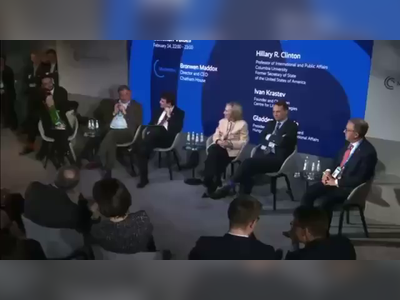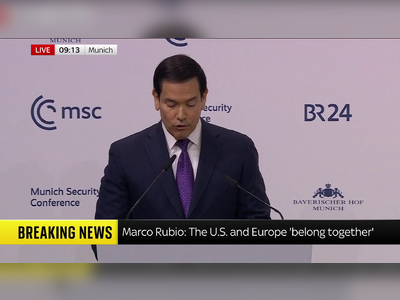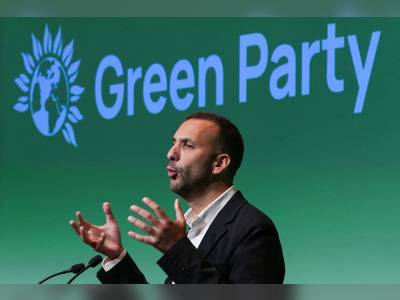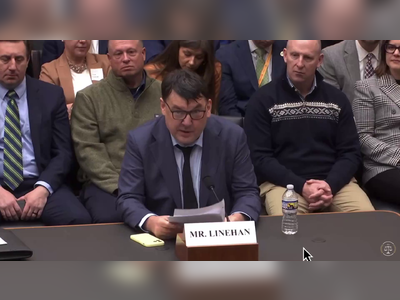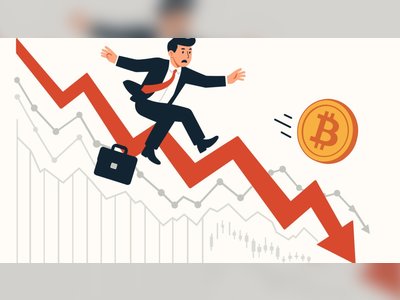
Germans Head to the Polls: No Single Favorite Likely to Secure Majority
More than 59 million eligible voters participate in early parliamentary elections to select 630 representatives in the Bundestag.
Germans are heading to the polls today, as approximately 59.2 million citizens with the right to vote will engage in the early parliamentary elections to choose 630 representatives for the new Bundestag, thereby indirectly selecting the new head of the federal government.
In addition to the domestic electorate, over three million German citizens living abroad are also eligible to vote, although logistical challenges may arise for them due to tight timelines.
There are five candidates competing for the office of chancellor, despite the formal designation of the head of government occurring only after the election results are tallied.
The candidates have been nominated by the Christian Democratic Union (CDU) and the Christian Social Union (CSU), the Social Democratic Party (SPD), the Green Party, the right-wing Alternative for Germany (AfD), and the left-populist Alliance Sara Wagenknecht (BSW).
The Federal Election Commission has approved the participation of 41 parties in the elections, but only 29 will actively campaign, with some representing only certain federal states.
The electoral threshold is set at 5 percent.
The number of candidates listed for the elections has decreased to 4,506, a notable reduction from the 6,211 candidates in the 2021 elections.
Approximately one-third of the candidates are women.
Around 80 percent of the current Bundestag members are seeking reelection.
The Bundestag, with its previous total of 736 seats, was recognized as the largest elected lower house of parliament worldwide.
The upcoming elections are being held under a new electoral law that combines aspects of majoritarian and proportional representation systems.
This law aims to decrease the number of seats in the oversized parliament, hence the reduction to 630 seats.
The Federal Republic of Germany is divided into 299 electoral districts, designed to ensure an approximately equal population density regardless of the number of eligible voters.
Demographic changes significantly characterize these elections.
In 2021, 61.2 million voters were registered in Germany.
Among the current electorate, over 40 percent are over the age of 60, and a quarter are older than 70. Conversely, those under 30 years old account for only 13.3 percent of the voting populace, with 2.3 million young voters eligible to cast their ballot for the first time, representing about 4 percent of the electorate.
A total of 650,000 volunteers will be mobilized to oversee the elections and vote counting processes and to maintain order at polling stations.
Originally scheduled for the next autumn, these elections were called temporarily following the collapse of the ruling coalition comprising the SPD, Greens, and the Free Democratic Party (FDP).
Recent polls indicate that the CDU, under the leadership of candidate Friedrich Merz, has regained approximately 30 percent polling support, establishing it as the most favored party heading into the elections.
The elections are set against a backdrop of economic challenges, global crises, migration issues, and limited focus on climate policy.
The campaign period was short but intensely competitive, with the phrase “change course” frequently reiterated.
Merz criticized the incumbent coalition's left-wing policies, emphasizing dissatisfaction among voters.
The Greens maintain nearly the same level of support as in 2021, whereas both the SPD and the FDP have seen substantial declines in their popularity.
The FDP is at risk of failing to reach the 5 percent threshold, while the SPD could face its worst electoral outcome in post-war Germany if it secures less than 20 percent support.
Should the SPD remain below this threshold, Chancellor Olaf Scholz would record the shortest term for any chancellor in the last fifty years, marking a significant shift for the party.
The CDU, historically dominant in German politics for 16 years under Angela Merkel, is positioned to reclaim a leadership role after being the strongest opposition party in recent years.
The AfD follows closely behind, with polling numbers indicating more than 20 percent support, doubling their figures compared to 2021.
Economic decline has been a focal point of the campaigns, with Merz attributing the downturn to governmental mismanagement and asserting that the nation’s economy has lagged behind that of its EU counterparts.
As economic issues dominate discussions, migration has become increasingly salient following a violent incident involving an Afghan asylum seeker.
The incident catalyzed political reactions, prompting Merz to advocate for stricter asylum policies.
National protests were staged against any potential cooperation between the CDU and the AfD, drawing tens of thousands of demonstrators advocating for a non-collaborative approach towards extremist parties.
In contrast, Merz has reiterated his stance against partnerships with the AfD while acknowledging the complexities of coalition-building, given the fragmented political landscape.
The emergence of the AfD has significantly altered the political dynamics in Germany, prompting concerns over potential shifts towards rightwing populism.
Coalition negotiations are anticipated to be challenging and will largely depend on the extent to which various parties can assert their political agendas.
As campaign issues fluctuate, the environment remains tense with parties advocating for their social and climate agendas diverging significantly.
In addition to the domestic electorate, over three million German citizens living abroad are also eligible to vote, although logistical challenges may arise for them due to tight timelines.
There are five candidates competing for the office of chancellor, despite the formal designation of the head of government occurring only after the election results are tallied.
The candidates have been nominated by the Christian Democratic Union (CDU) and the Christian Social Union (CSU), the Social Democratic Party (SPD), the Green Party, the right-wing Alternative for Germany (AfD), and the left-populist Alliance Sara Wagenknecht (BSW).
The Federal Election Commission has approved the participation of 41 parties in the elections, but only 29 will actively campaign, with some representing only certain federal states.
The electoral threshold is set at 5 percent.
The number of candidates listed for the elections has decreased to 4,506, a notable reduction from the 6,211 candidates in the 2021 elections.
Approximately one-third of the candidates are women.
Around 80 percent of the current Bundestag members are seeking reelection.
The Bundestag, with its previous total of 736 seats, was recognized as the largest elected lower house of parliament worldwide.
The upcoming elections are being held under a new electoral law that combines aspects of majoritarian and proportional representation systems.
This law aims to decrease the number of seats in the oversized parliament, hence the reduction to 630 seats.
The Federal Republic of Germany is divided into 299 electoral districts, designed to ensure an approximately equal population density regardless of the number of eligible voters.
Demographic changes significantly characterize these elections.
In 2021, 61.2 million voters were registered in Germany.
Among the current electorate, over 40 percent are over the age of 60, and a quarter are older than 70. Conversely, those under 30 years old account for only 13.3 percent of the voting populace, with 2.3 million young voters eligible to cast their ballot for the first time, representing about 4 percent of the electorate.
A total of 650,000 volunteers will be mobilized to oversee the elections and vote counting processes and to maintain order at polling stations.
Originally scheduled for the next autumn, these elections were called temporarily following the collapse of the ruling coalition comprising the SPD, Greens, and the Free Democratic Party (FDP).
Recent polls indicate that the CDU, under the leadership of candidate Friedrich Merz, has regained approximately 30 percent polling support, establishing it as the most favored party heading into the elections.
The elections are set against a backdrop of economic challenges, global crises, migration issues, and limited focus on climate policy.
The campaign period was short but intensely competitive, with the phrase “change course” frequently reiterated.
Merz criticized the incumbent coalition's left-wing policies, emphasizing dissatisfaction among voters.
The Greens maintain nearly the same level of support as in 2021, whereas both the SPD and the FDP have seen substantial declines in their popularity.
The FDP is at risk of failing to reach the 5 percent threshold, while the SPD could face its worst electoral outcome in post-war Germany if it secures less than 20 percent support.
Should the SPD remain below this threshold, Chancellor Olaf Scholz would record the shortest term for any chancellor in the last fifty years, marking a significant shift for the party.
The CDU, historically dominant in German politics for 16 years under Angela Merkel, is positioned to reclaim a leadership role after being the strongest opposition party in recent years.
The AfD follows closely behind, with polling numbers indicating more than 20 percent support, doubling their figures compared to 2021.
Economic decline has been a focal point of the campaigns, with Merz attributing the downturn to governmental mismanagement and asserting that the nation’s economy has lagged behind that of its EU counterparts.
As economic issues dominate discussions, migration has become increasingly salient following a violent incident involving an Afghan asylum seeker.
The incident catalyzed political reactions, prompting Merz to advocate for stricter asylum policies.
National protests were staged against any potential cooperation between the CDU and the AfD, drawing tens of thousands of demonstrators advocating for a non-collaborative approach towards extremist parties.
In contrast, Merz has reiterated his stance against partnerships with the AfD while acknowledging the complexities of coalition-building, given the fragmented political landscape.
The emergence of the AfD has significantly altered the political dynamics in Germany, prompting concerns over potential shifts towards rightwing populism.
Coalition negotiations are anticipated to be challenging and will largely depend on the extent to which various parties can assert their political agendas.
As campaign issues fluctuate, the environment remains tense with parties advocating for their social and climate agendas diverging significantly.
AI Disclaimer: An advanced artificial intelligence (AI) system generated the content of this page on its own. This innovative technology conducts extensive research from a variety of reliable sources, performs rigorous fact-checking and verification, cleans up and balances biased or manipulated content, and presents a minimal factual summary that is just enough yet essential for you to function as an informed and educated citizen. Please keep in mind, however, that this system is an evolving technology, and as a result, the article may contain accidental inaccuracies or errors. We urge you to help us improve our site by reporting any inaccuracies you find using the "Contact Us" link at the bottom of this page. Your helpful feedback helps us improve our system and deliver more precise content. When you find an article of interest here, please look for the full and extensive coverage of this topic in traditional news sources, as they are written by professional journalists that we try to support, not replace. We appreciate your understanding and assistance.




